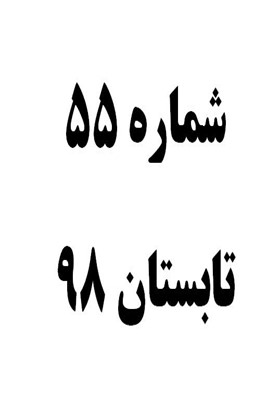The political and religious relations of Nizārī Ismā'īlī with the successors of Sultan Mohammad Ghiyath Al-Din Seljuqi
Subject Areas : Epistemological and methodological researcher of historical researchMalihe Mehrabi Delshad 1 , shahrzad sasanpour 2 , masomeh gharadaghi 3 , Ramin yalfani 4
1 - Ph.D. student of post-Islamic history of Iran, History group, Shabestar Branch, Islamic Azad University, Shabestar, Iran
2 - Assistant Professor, Department of Islamic teaching , Tehran Branch, Islamic Azad University Central, Iran
3 - university faculty
4 - Assistant Professor, Department of History, Yadegar-e Imam Khomeini (R), , Shahre Ray, Islamic Azad University, Tehran, Iran
Keywords: Malekshah successors, Sultan Muhammad, political and religious focus, Siege castles,
Abstract :
In this research, the political and religious confrontation of the Seljuk with the Nizārī Ismā'īlī has been studied between 498 and 511 AH. During the above period Sultan Muhammad managed to sort out the turmoil that occurred after the death of Malekshah Re-establish political and religious concentration in the Seljuk-dominated geography. On the one hand, the Nizārī Ismā'īlī from the vacuum and turmoil that had already taken place In the direction of developing their own power, they had taken extensive measures in different regions. Therefore, the repression of Nizari was considered the most important political and religious priority of Sultan Muhammad and In this regard, all the central and local capacities were used to conquer the Ismaili Castles. However, Nizarians suffered plenty of damage during frequent attacks al-Seljuk, and lost their castles in Fars, Khuzestan and especially Esfahan, which was in this period capital of the Seljuk period.But with the influence of the Seljuk government, adopting a decentralized approach, eliminating effective political and religious people, patience and Authority against siege of Castles, and launching religious debates during the struggle they were able to survive. If there were no significant achievements of the Ismailis that included the preservation of the political, geographic, and the protection of their intellectual and vital ideas, It was likely that the very strict atrocities in this period would have led to the dismantling of Nizari's organization and structure.
_||_


